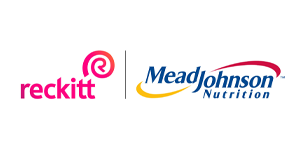All times listed in Eastern Time (New York)
This session, led by two mothers of children with pediatric feeding disorder, will showcase the case studies of two incredible children navigating the challenges of pediatric feeding disorder. Hear first hand accounts of medically complex children, insider perspectives of mothers who also have careers in health, and the effects of peer to peer mentoring on creating a shared narrative during a critically isolating experience.
Learning Objectives
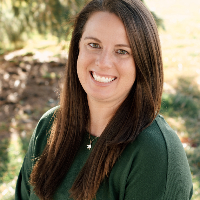
Jena Twete, MS, CSCS
Special Olympics Colorado
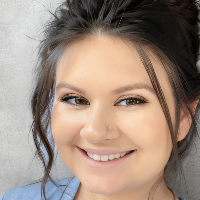
Cassidy Martinez, RN, BSN
Aveanna Healthcare
(For subtitles, please access here: https://attend.wordly.ai/join/MHJZ-7792 )
And keep the window open along with the Zoom application to enjoy the session.
Feeding Matters’ Shannon Goldwater Summit for Change understands that for optimal outcomes to be achieved it must be a team effort, which includes families. Families, professionals, and community partners will engage in dialogue to address pressing issues related to episodic care such as duration of care, breaks in service, treatment approaches, and insurance coverage through the use of case studies, panel discussions, and resource dissemination. This event will focus on meeting families exactly where they are while providing tangible, immediate, next steps to move forward and progress in their PFD journey.
Learning Objectives

Ruth Bourque, MS, OTR/L
Memorial Health

Jenny McGlothlin, MS, CCC/SLP, CLC
UT Dallas Callier Center for Communication Disorders

Cuyler Romeo, MOT, OTR/L, SCFES, IBCLC
Feeding Matters, Banner University Medical Center-Tucson
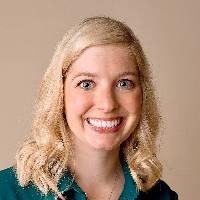
Dana Kizer, MS, OTR/L, BCP, Family Advocate
Texas Children's Hospital; Feeding and Swallowing Specialists of The Woodlands
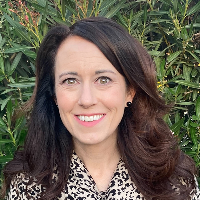
Amber Mieras, FAC Chair, Parent of Child with PFD
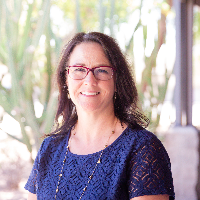
Deanna Montalbano, Content Expert
Desert Valley Pediatric Therapy

Toneisha Bush, MA, CCC-SLP
AMN Healthcare; The Flower Institute

Grant Morris, MD, MPH, FAAP, FAC member, Parent of Child with PFD
Geisinger Health System
Click here to open the subtitles
A new window will open, do not close the Zoom app. You must keep both windows open to enjoy the session and subtitles.
Feeding skills are more than meets the eye. Delve into the intricate world of neurophysiology as it relates to swallowing across the lifespan, a crucial aspect in navigating the complexity of pediatric feeding disorder (PFD). Join us in this keynote to broaden your insights into swallow neurophysiology, discover effective methods for improving outcomes in children with PFD, and explore cutting-edge technologies shaping the future of PFD management. The question lingers: Can neuroscience be the key to advancing PFD treatment?
Learning Objectives

Georgia A. Malandraki, PhD, CCC-SLP, BCS-S, F-ASHA
Purdue University
Effects of Infant-Driven Feeding in the NICU for Premature Infants with Comorbidities
Courtney Green, MS, CF-SLP
Historically, premature infant oral feeding attainment was considered a function of gestational age(GA)/neurodevelopmental maturity only. However, some researchers suggest comorbidities have greater impact; others report feeding method has the greatest impact. This study investigated relationships between GA, morbidities, and feeding method on time to full oral feeding in preterm infants.
Learning Objectives
_____________________________________
Physiological Measures of Breastfeeding: A comparison between term vs pre-term infants
Buddhika Prasangi, BSc Honours; Isuru Dharmarathna, PhD
The presentation discusses the biomechanics of breastfeeding as a complex and critical neurophysiological function for newborn babies. The session describes physiological measures of breastfeeding that can be obtained from infants non-invasively. The presentation reports findings from a comparison of objective physiological measures of breastfeeding between term and preterm infants.
Learning Objectives
_____________________________________
Feeding Challenges for Infants of Diabetic Mothers, a Research Review
Leslie-Anne Dietrich, MD, IBCLC; Melanie Van Hoy, MS, CCC-SLP, CLC, CNT, NTMTC
During the presentation, results of the literature review researching oral feeding difficulties in infants of diabetic mothers (IDMs) will be shared. Participants will be provided an overview of oral feeding complications that may arise in IDMs. Feeding treatment methods currently utilized will be discussed by a neonatologist and speech pathologist.
Learning Objectives

Courtney Green, MS, CF-SLP
RUSH Kids Pediatric Therapy & RUSH Copley Medical Center

Isuru Dharmarathna, PhD
KITE, Toronto Rehabilitation Research Institute, University Health Network, Canada
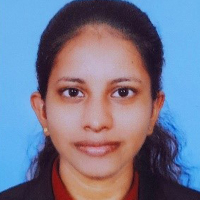
Buddhika Prasangi, BSc Honours
Miracle L Speech and Hearing Center, Battaramulla, Sri Lanka.

Leslie-Ann Dietrich MD, IBCLC
University of Texas Health San Antonio
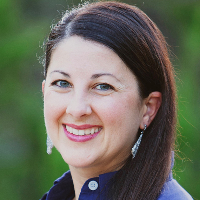
Melanie Van Hoy, MS, CCC-SLP, CLC, CNT, NTMTC
Therapy 2000
Discriminant Validity of the Environment, Attitudes, Temperament, Sensory (EATS) Feeding Assessment
Blair Carsone, PhD, MOT, OTR/L; Bryce Smith, OTD, OTR/L
The Environment, Attitudes, Temperament, and Sensory (EATS) Feeding Assessment was created to evaluate pediatric sensory-based feeding difficulties in an outpatient setting. Caregivers of children with and without feeding difficulties were surveyed and compared statistically. This research determined the discriminant validity of the EATS Feeding Assessment (p<.01) to be adequate.
Learning Objectives
_____________________________________
Psychometric Properties of SMART Feeding Tool: An interprofessional research study
Anne Albi, MS, CCC-SLP, IBCLC; Ravi Mishra, MD, FAAP; Cynthia Lira-Crame, MSN, RNC-NIC, NPD-BC
Feeding difficulties are a frequent complication of prematurity. Infant feeding assessment tools with well-established validity and reliability are lacking in the literature. This led to an inter-professional partnership among NICU providers to develop and test the psychometric properties of a novel infant feeding assessment tool: the SMART Tool.
Learning Objectives
_____________________________________
Comorbidities in Paediatric Feeding Disorders**
Natalie Morris, MSc, BA (Hons) (SLP); Lucy Bates, Bsc (Hons) (OT); Hannah Daw, MSc (RD)
Drawing on new data from a retrospective observational study, a multi-disciplinary team examine the prevalence of comorbidities in PFD. We share findings on the prevalence of allergies, gastrointestinal disorders, neurodevelopmental conditions, nutritional deficiencies, medical conditions, mental health conditions and sensory processing disorders in PFD, discussing the impact for clinical practise.
Learning Objectives
**This 20-minute talk is not accredited with the Commission on Dietetic Registration

Blair Carsone, PhD, MOT, OTR/L
Gannon University, Kids SPOT, and Carsone KIDS

Bryce Smith, OTD, OTR/L
CarsoneKIDS, Inc.

Anne Albi, MS, CCC-SLP, IBCLC
Advocate Health, co-owner of Lactation Care Connection, LLC

Cynthia Lira-Crame, MSN, RNC-NIC, NPD-BC
Advocate Illinois Masonic Medical Center

Ravi Mishra, MD, FAAP
Advocate Health

Hannah Daw, MSc (RD)
The Feeding Trust
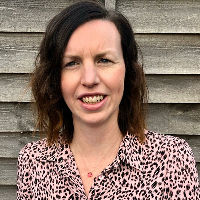
Lucy Bates, Bsc (Hons) (OT)
The Feeding Trust; Lucy Bates Children’s OT Ltd

Natalie Morris, MSc, BA (Hons) (SLP)
The Feeding Trust & Integrated Therapy Solutions Ltd
Click here to open the subtitles
A new window will open, do not close the Zoom app. You must keep both windows open to enjoy the session and subtitles.
Learners will immerse themselves in real case studies of patients with restricted diets for various reasons. Discovery of similarities between patients despite unique diets will identify gaps in nutrients that are now more common with our evolving food system, growing food deserts and financial burden of a nutritionally complete diet. With compassion at the forefront of care for patients, tips and tricks will aid in developing a culturally relevant and obtainable diet with nutrient gaps fulfilled. Learning Objectives

Raquel Durban, MS, RD, LD/N
Click here to open the subtitles
A new window will open, do not close the Zoom app. You must keep both windows open to enjoy the session and subtitles.
Parent feeding practices in the NICU are influenced by social determinants of health (SDOH), ranging from transportation to cultural beliefs and values to hospital visitation policies and access to services at discharge. This session explores a case study highlighting opportunities to reduce barriers to parent feeding by actively addressing SDOH.
Learning Objectives

Stefanie LaManna, MS, CCC-SLP, CNT
American Speech-Language Hearing Association
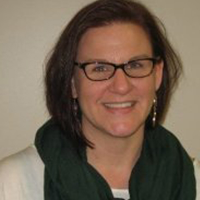
Brooke Hatfield, MS, CCC-SLP
American Speech-Language Hearing Association
Click here to open the subtitles during the LIVE Q&A:
A new window will open, do not close the Zoom app. You must keep both windows open to enjoy the session and subtitles.
School meals are more than nutrition. This presentation will explore the various ways that families, health care professionals, and school personnel can collaborate to create safe and inclusive mealtime experiences for students with PFD. Participants will learn about policies and share strategies for receiving support in their communities.
Learning Objectives
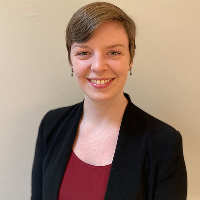
Lily Gullion, OTR/L (PhD Student at UNC- Chapel Hill)
University of North Carolina Chapel Hill
Click here to open the subtitles
A new window will open, do not close the Zoom app. You must keep both windows open to enjoy the session and subtitles.
In many families only one adult has been trained to tube feed their child, which can be stressful and isolating. Working with carers, for carers we co-created and evaluated a free education package that aims to safely increase carer expertise and agency in tube feeding including tube-positive values.
Learning Objectives

Chris Elliot, B.Med (Hons) FRACP
Consultant Pediatrician
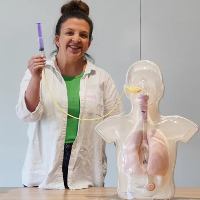
Anna Ierardo, Parent
SUCCEED Child Feeding Alliance

Nick Hopwood, BA (Hons) MsC PhD MD (Honoris Causa)
University of Technology Sydney
Click here to open the subtitles
A new window will open, do not close the Zoom app. You must keep both windows open to enjoy the session and subtitles.
No known service exists that targets parent understanding of Pediatric Feeding Disorder (PFD). This presentation will describe the challenges with parent understanding of PFD, help attendees evaluate their own practices in relation to these challenges, and share a novel program, the ABCs of Feeding, that aims to support their understanding.
Learning Objectives

Adina Seidenfeld, PhD
Nationwide Children's Hospital; Ohio State University
Click here to open the subtitles
A new window will open, do not close the Zoom app. You must keep both windows open to enjoy the session and subtitles.
In August 2022, Feeding Matters hosted a Consensus Summit in partnership with Children's Healthcare of Atlanta and Emory University. This summit brought leaders in the eating disorder and feeding disorder fields together to acknowledge the overlap of the two diagnoses, determine areas of consensus on how to use both diagnoses, and identify best opportunities for assessment. This session will be sharing the details from the Summit and provide insight for the future direction on how both fields can work together to support better outcomes for children.

Hayley Estrem, PhD, RN
University of North Carolina at Wilmington
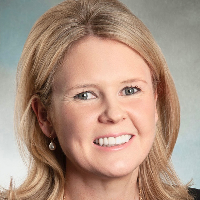
Pamela Dodrill, PhD
Brigham and Women’s Hospital

Jennifer Thomas, PhD, FAED
Massachusetts General Hospital, Harvard Medical School

William Sharp, PhD
Emory University + Children’s Multidisciplinary Feeding Program
Click here to open the subtitles during the LIVE Q&A
A new window will open, do not close the Zoom app. You must keep both windows open to enjoy the session and subtitles.
Important Evidence-Based Practice Factors to Consider in Pediatric Feeding Disorders
Ross Westemeyer, PhD, CCC-SLP
The current state of evidence-based practice (EBP) in speech-language pathology’s scope of practice in the management of pediatric feeding disorders will be reviewed. Barriers, facilitators, and consideration of other related factors to EBP components (i.e., research evidence, clinical experience, and client perspectives) will be discussed.
Learning Objectives
_____________________________________
Using Parent-Reported Tools in Assessment for Pediatric Feeding Disorder (PFD)
Jeanne Marshall, PhD, B Sp Path
This session will provide a practical overview of Patient Reported Outcome Measures (PROMs) in assessment for children with Pediatric Feeding Disorder (PFD). We will review the content, application, and interpretation of different PROMs across several case studies, and learn how to critique appropriate PROMs.
Learning Objectives
__________________________________
Examining the Association Between Maternal Postpartum Stress and Infant Non-Nutritive Suck
Alaina Martens, MS, CCC-SLP (PhD Student)
To determine the association between maternal postpartum perceived stress and infant non-nutritive suck (NNS) at 3 months. Maternal postpartum perceived stress was associated with reduced NNS burst activity, indicating that mother’s who reported higher stress had infants with fewer suck bursts. This is consistent with prior prenatal research.
Learning Objectives
__________________________________
Mealtime Reimagined: Initiating a sensory feeding group with medically complex children
Stephanie Waters, MS, CCC-SLP, CLC; Elizabeth Curney, MS, OTR/L
Medically complex children requiring extensive hospitalization and supplemental means of nutrition often are unable to participate in traditional mealtime experiences. This session will provide education on how to create a collaborative, evidence-based sensory feeding group targeting the mealtime experience, sensory exploration, and developmental feeding skills while accounting for medical acuity.
Learning Objectives
_____________________________________
Chewing in Minimally Verbal and Verbal Children with Autism Spectrum Disorder
Emily Moran, SLP-CF
This study looks at chewing in minimally verbal and verbal children with ASD aged 4;1-7;8, (MV=15, V=19). It examines remotely collected data to assess number of chews, number of swallows, duration of chewing cycles, and number of extraneous movements before swallowing; and relate these variables to language and motor skills.
Learning Objectives
_____________________________________
Health-Related Quality of Life of Parents of Children with Pediatric Feeding Disorders
Nadeesha Nirmani, BSc Honours (SLP); Isuru Dharmarathna, PhD
Pediatric feeding disorders (PFD) affects functioning and social participation of children. This presentation reports a study to evaluate the health-related quality of life of parents/ caregivers of children with PFD. The session highlights why and how healthcare systems should focus on parents/ families to improve outcomes for children with PFD.
Learning Objectives
_____________________________________
Feeding Therapy Interventions and Frequency of Use: A pilot study
Michelle Beechamp, OTD, OTR/L (co-authors: Ronise Benson, OTD/S; Madison Farmer, OTD/S)
This presentation explores a new pilot study being conducted with the goal of determining the most frequently used feeding therapy interventions in an outpatient feeding clinic. This research will provide a foundation for future studies regarding treatment approaches, and provide evidence to support feeding therapy treatment for children with PFD.
Learning Objectives

Ross Westemeyer, PhD, CCC-SLP
Northeastern University

Jeanne Marshall, B Sp Path, PhD
Children's Health Queensland Hospital and Health Service & The University of Queensland; The Informed SLP

Alaina Martens, MS, CCC-SLP
Northeastern University
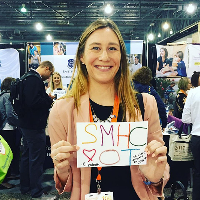
Elizabeth Curney, MS, OTR/L
St. Mary's Healthcare System for Children
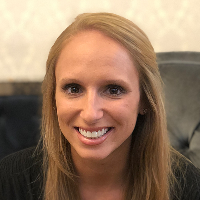
Stephanie Waters, MS, CCC-SLP, CLC
St. Mary's Hospital for Children, NYU Langone, Therapy Insights, Adelphi University

Emily Moran, SLP-CF
Massachusetts General Hospital

Nadeesha Nimani, BSc Honours (SLP)
Wickramarachchi Hearing Care, Kadawatha, Sri Lanka

Isuru Dharmarathna, PhD
KITE, Toronto Rehabilitation Research Institute, University Health Network, Canada
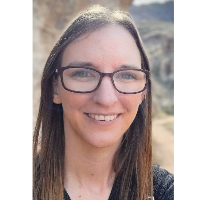
Michelle Beechamp, OTD, OTR/L
Desert Valley Pediatric Therapy

Ronise Benson

Madison Farmer
Click here to open the subtitles
A new window will open, do not close the Zoom app. You must keep both windows open to enjoy the session and subtitles.
The 2024 Symposium aims to outline the key components and strategies involved in the development of an educational pathway for pediatric feeding disorder (PFD). In recognizing the critical need for specialized education in this field, our pillar chairs, along with our director of strategic initiatives will have an open discussion with our PFD Alliance community about what opportunities are available within each pillar to best integrate a pathway and how to determine the optimal course of action when implementing education.
During this unique live event participants will have the opportunity to share challenges and generate ideas through dynamic real-time interaction with other participants, leadership, and families. Participants will leave with new ideas and renewed motivation to move the system of care for PFD towards a brighter future.
Learning Objectives

Cuyler Romeo, MOT, OTR/L, SCFES, IBCLC
Feeding Matters

Amy Delaney, PhD
Marquette University
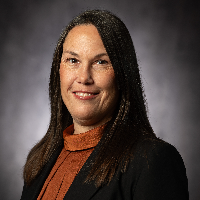
Paula Rabaey, PhD
University of Minnesota

Erin Ross, PhD
Feeding Fundamentals

Amber Mieras, FAC Chair, Parent of Child with PFD

Nikhila Raol, MD, MPH, FAAP
Children’s Healthcare of Atlanta
Harmonizing Feeding Therapy with Different Cognitive Developmental Stages in Pediatric Feeding Disorders
Kelly Fitzpatrick, CCC-SLP, CLC; Lindsay Beckerman, MOT, OTR/L
Delve into the interplay between cognitive developmental stages and effective feeding therapy for Pediatric Feeding Disorders. Explore Piaget's cognitive stages and their impact on feeding development, uncovering tailored strategies for optimal progress. Real-life case studies illuminate how therapists can adapt approaches across the lifespan.
Learning Objectives
_____________________________________________
Clinical Insights and Caregiver Voices: Home-based medically-complex tube weaning
Brianna Miluk, CCC-SLP; Denise Clark, Parent
Discover a transformative approach to home-based pediatric tube weaning in a medically- complex case. Using a family-driven, responsive approach, we will address medical, nutritional, feeding skill, and psychosocial factors, including the importance of a multidisciplinary approach. Gain invaluable insights from real-life caregiver experiences and clinical expertise for compassionate, successful tube weaning.
Learning Objectives
_____________________________________________
ABA's Role in Feeding 101
Theresa Bartholomew, BCBA
Applied Behavior Analysis (ABA) offers approaches for treating Pediatric Feeding Disorders (PFD) and Avoidant Restrictive Food Intake Disorder (ARFID). Sharing our evidence-based techniques, ABA can address feeding challenges in a lead or collaborative role. It’s comprehensive focus on the whole child ensures personalized interventions and enhancing overall treatment strategies.
Learning Objectives

Lindsay Beckerman, MOT, OTR/L
Developmental FX Toomey & Associates
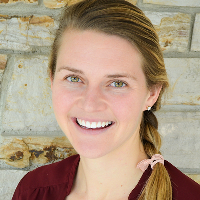
Kelly Fitzpatrick, CCC-SLP, CLC
Pediatric Gastroenterology Hepatology & Nutrition of Florida

Brianna Miluk, MS, CCC-SLP, CLC
Pediatric Feeding Therapy, LLC & Contract employee with Earthshine Speech and Language

Denise Clark, Parent of child with PFD

Theresa Bartholomew, BCBA
Jade Behavioral Consultants
Virtual Family-Based Care for Avoidant/Restrictive Food Intake Disorder
Jessie Menzel, PhD
There are limited treatment options for the feeding and eating disorder avoidant/restrictive food intake disorder. For other childhood eating and psychiatric disorders, family-based approaches to treatment are considered best practice; however accessibility is lacking. We describe a virtual approach to family-based care and evaluate treatment outcomes for this approach.
Learning Objectives
_____________________________________________
Meeting Halfway: A multidisciplinary approach to PFD treatment in children with autism
Emily Bragg, MS, CCC-SLP; Jessica Owens, CPNP-PC; Sharon Wallace, RD, CSP, LDN
Children with autism are at higher risk for restricted diets, gastrointestinal disorders, and familial stress than children who do not have autism. Through case studies and discussion of a collective, multidisciplinary model used by our feeding team, our team will highlight examples of positive feeding outcomes for this unique population.
Learning Objectives
_____________________________________________
Addressing PFD in Neurodiverse Children in Schools: Success stories and lessons learned
Margaryta Kuzmin, MA, CCC-SLP, TSSLD-BE
With a decade's experience as a school-based speech-language pathologist specializing in treating medically complex students, addressing Pediatric Feeding Disorders (PFD) in educational settings proves a formidable challenge. The case studies highlight collaborative efforts, obstacles encountered, and their influence on students' feeding outcomes.
Learning Objectives
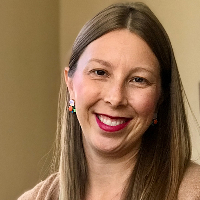
Jessie Menzel, PhD
Equip Health

Jessica Owens, CPNP-PC
UNC Health

Emily Bragg, MS, CCC-SLP
UNC Health
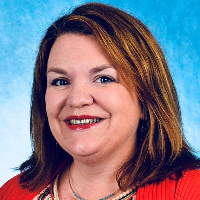
Sharon Wallace, RD, CSP, LDN
University of North Carolina Hospitals /UNC Children’s Hospital Chapel Hill NC
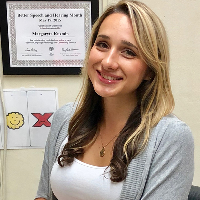
Margaryta Kuzmin, MA, CCC-SLP, TSSLD-BE
NYC Department of Education (D75-Special Education) & Right Start Inc. Early Intervention
Click here to open the subtitles
A new window will open, do not close the Zoom app. You must keep both windows open to enjoy the session and subtitles.
Research suggests that family readiness, mealtimes routines, bowel regimen, and sleep routines are associated with feeding outcomes. Addressing these areas is paramount when considering all four domains of PFD. This course will review how to address these areas to set the family unit up for long-term success.
Learning Objectives
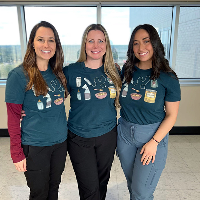
Kristine Perez, MS CCC-SLP
Orlando Health
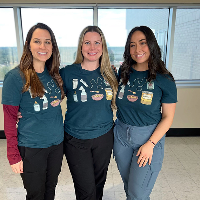
Jessica Martin, MS OTR/L, CLT, CLC
Orlando Health
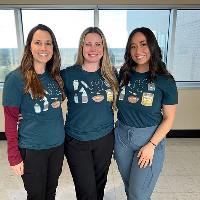
Stephanie Kern, MS OTR/L, CLC
Orlando Health
Click here to open the subtitles
A new window will open, do not close the Zoom app. You must keep both windows open to enjoy the session and subtitles.
Blenderized formulas can play an important role in the nutrition support of children with PFD who require tube feeding. With increased prevalence of use, practitioners must be educated on appropriate use of these formulas and understand the pros and cons to make better decisions when selecting and using these formulas.
Learning Objectives

Liz Evenson, MS, RD, LD, CLC
Nationwide Children's Hospital
Click here to open the subtitles
A new window will open, do not close the Zoom app. You must keep both windows open to enjoy the session and subtitles.
Interoception, the body’s perception, recognition, and response to internal cues, is a foundation for regulation of physiological functions. During this session, presenters will introduce interoception and discuss the impact of interoception on pediatric feeding. Case studies will be utilized to connect current literature to functional application for practitioners and families.
Learning Objectives
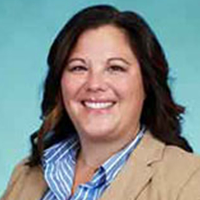
Cassaundra Corbett Miller, EdD, MS, CCC/SLP
West Virginia University Center for Excellence in Disabilities
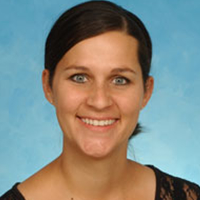
Amy Kurowski-Burt, EdD, MOT, OTR/L
West Virginia University Center for Excellence in Disabilities
Click here to open the subtitles
A new window will open, do not close the Zoom app. You must keep both windows open to enjoy the session and subtitles.
Eosinophilic esophagitis (EoE) is an allergic condition that has rapidly transformed over the past 30 years from a case-reportable disease to a major cause of upper gastrointestinal morbidity in the United States. In this talk, Dr. McGowan and Tegan Medico will first discuss the clinical presentation, epidemiology, and natural history of EoE. They will then review emerging data on how EoE may be underdiagnosed, especially in populations with limited access to care. Finally, they will provide an overview of the nutritional assessment in patients with EoE and highlight potential nutritional deficiencies.
Learning Objectives
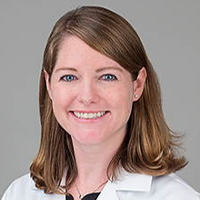
Emily McGowan, MD, PhD
University of Virginia School of Medicine
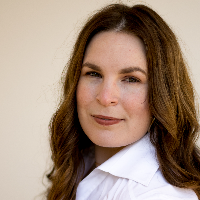
Tegan Medico, MS, MPH, RDN, CNSC
University of Virginia Health
Click here to open the subtitles
A new window will open, do not close the Zoom app. You must keep both windows open to enjoy the session and subtitles.
Feeding Characteristics and Behaviors in Young Children with Food Allergies
Jennifer Kefford, MSLP
Preliminary data collected from three major allergy clinics will be presented regarding the feeding characteristics and behaviors of young children (6mths-4;11) with food allergies. The children were categorized into three age groups (6-18 months, 19-35 months, 36-59 months) and any similarities and differences found between the groups will be discussed.
Learning Objectives
_____________________________________________
A Model for PFD Education in SLP Graduate Students: Knowledge and skills
Cindy Lund, PhD, CCC-SLP, C/NDT
Families with children who have PFD seek professional support for intervention. However, formal education in PFD is provided in less than 1⁄4 of SLP graduate programs. The purpose of this presentation is to share development and implementation of formal academic and clinical education of SLP graduate students specific to PFD.
Learning Objectives
_____________________________________________
Factors Associated with Thickened Feedings and its Impact at 1-2 Months Post-Term
Suzanne Thoyre, PhD, RN, FAAN
This prospective, descriptive study of 46 infants from a level III neonatal intensive care unit that uses thickening as a feeding strategy will provide evidence of who receives thickened milk feedings, and when, and the impact of thickening milk on infants, parents, and their families in their early months post-discharge.
Learning Objectives
___________________________________________
FEEDS: A transdisciplinary approach to navigating early childhood feeding challenges
Isabella Herold, MPH, RDN, CDN, CLC; Madeleine Amdur, LCSW, MPH; Anya Holit-Gsell, LMSW; Nazish Pervez, RD, CDN, CLC
FEEDS programming, led by a child developmental specialist and a dietitian, provides virtual nutrition, behavior, and development guidance and support for children up to age five with feeding differences, challenging mealtime behaviors, and growth concerns. In this presentation we will discuss the format, successes, and challenges of FEEDS programming.
Learning Objectives
_____________________________________________
The Effectiveness of a 12 week Feeding Program Emphasizing Parental-Clinician Collaboration
Ida Barresi, MA, CCC-SLP
Pediatric feeding disorders affect more than 1 in 37 children under the age of 5 in the United States yearly resulting in unpleasant mealtime experiences. Feeding programs are difficult to access. As a result, children do not receive the necessary intervention impeding nutrition, development, growth and overall well being.
Learning Objectives
_____________________________________________
Feeding A Short Gut: A clinician/parent perspective
Meagan Short, CCC-SLP
Short bowel syndrome (SBS) is a condition in which the body is unable to absorb nutrients from foods due to shortened or damaged bowel. As a mother of a child with short bowel syndrome and a speech-language-pathologist, Meagan Short offers a dual-perspective account of the feeding challenges associated with SBS.
Learning Objectives
-------------------------------------------------------------------------------
Screening For Pediatric Feeding Disorder, Identifying Patients at Risk for PFD at the Pediatrician’s Office
Lauren Hamilton, MD Student, Class of 2026
The need for early identification of pediatric feeding disorder (PFD) to prevent further or future disability is known, however screening practices are not well established. This talk shares lessons learned from a pilot study conducted at a local pediatrician’s office exploring the feasibility of screening for PFD using the ICFQ 6-question screener.
Learning Objectives
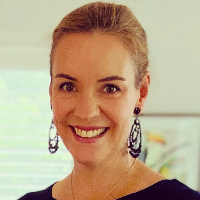
Jennifer Kefford, MSLP
NSW Health
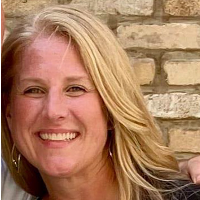
Cindy Lund, PhD, CCC-SLP, C/NDT
Concordia University Wisconsin

Suzanne Thoyre, PhD, RN, FAAN
University of North Carolina

Isabella Herold, MPH, RDN, CDN, CLC
Community Healthcare Network

Nazish Pervez, RD, CDN, CLC
Community Healthcare Network
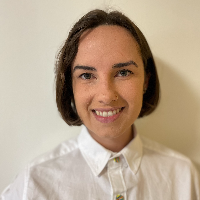
Anya Holit-Gsell, LMSW
Community Healthcare Network
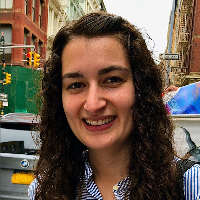
Madeleine Amdur, LCSW, MPH
Community Healthcare Network

Ida Barresi, MA, CCC-SLP
Rose F. Kennedy Center Children's Evaluation & Rehabilitation Center at Montefiore
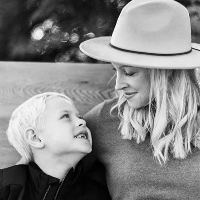
Meagan Short, CCC-SLP
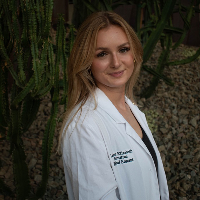
Lauren Hamilton, MD Student, Class of 2026
Student: U of Arizona College of Medicine Phoenix

Thank you to the
North American Society For Pediatric Gastroenterology, Hepatology & Nutrition (NASPGHAN) for their endorsement!


Feeding Matters is an AOTA Approved Provider of professional development. PD activity approval ID# 9105. This virtual live and distance learning- independent and distance learning- interactive activity is offered at 2.25 CEUs, at the Intermediate Level, in OT Service Delivery, Professional Issues and Foundational Knowledge. The assignment of AOTA CEUs does not imply endorsement of specific course content, products, or clinical procedures by AOTA.
The Commission on Dietetic Registration has approved the conference for 16.5 CPEUs.
This activity has been planned and implemented in accordance with the accreditation requirements and policies of the Arizona Medical Association (ArMA) through the joint providership of Arizona Chapter of the American Academy of Pediatrics and Feeding Matters. Arizona Chapter of the American Academy of Pediatrics is accredited by ArMA to provide continuing medical education for physicians.
The Arizona Chapter of the American Academy of Pediatrics designates this hybrid/blended educational activity for a maximum of 22.00 AMA PRA Category 1 Credit(s)™.
Physicians should only claim credit commensurate with the extent of their participation in the activity.
Please join the Accreditation Chat Lounge or email conference@feedingmatters.org with any questions. It is a requirement that you complete the end of event Survey Monkey evaluation if you would like to accredited hours from any of the bodies listed above. This will be emailed to you on Friday April 26th.
End of Event Evaluation Link:
https://www.surveymonkey.com/r/MDPQLYY
